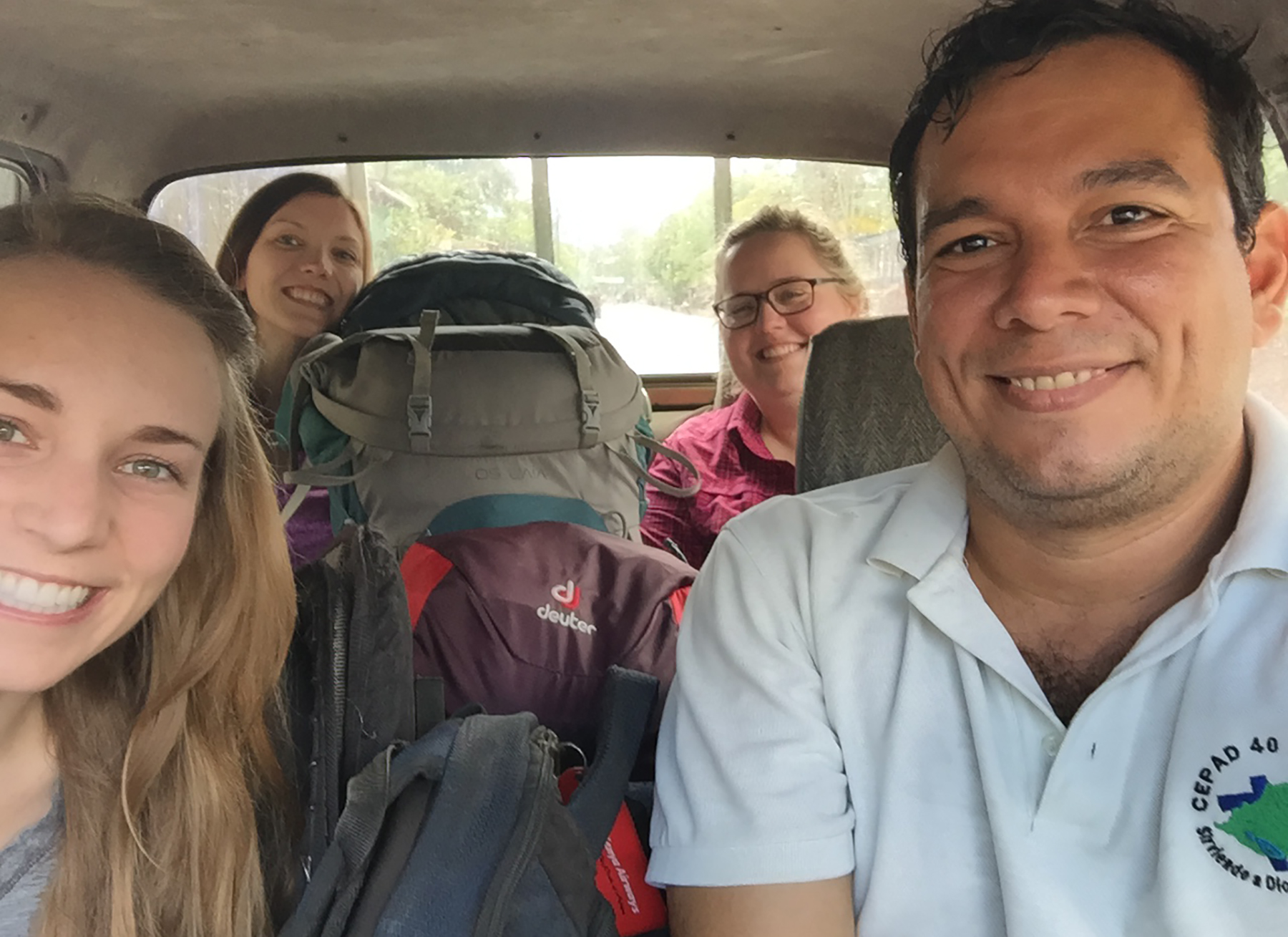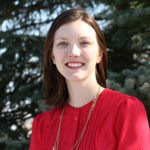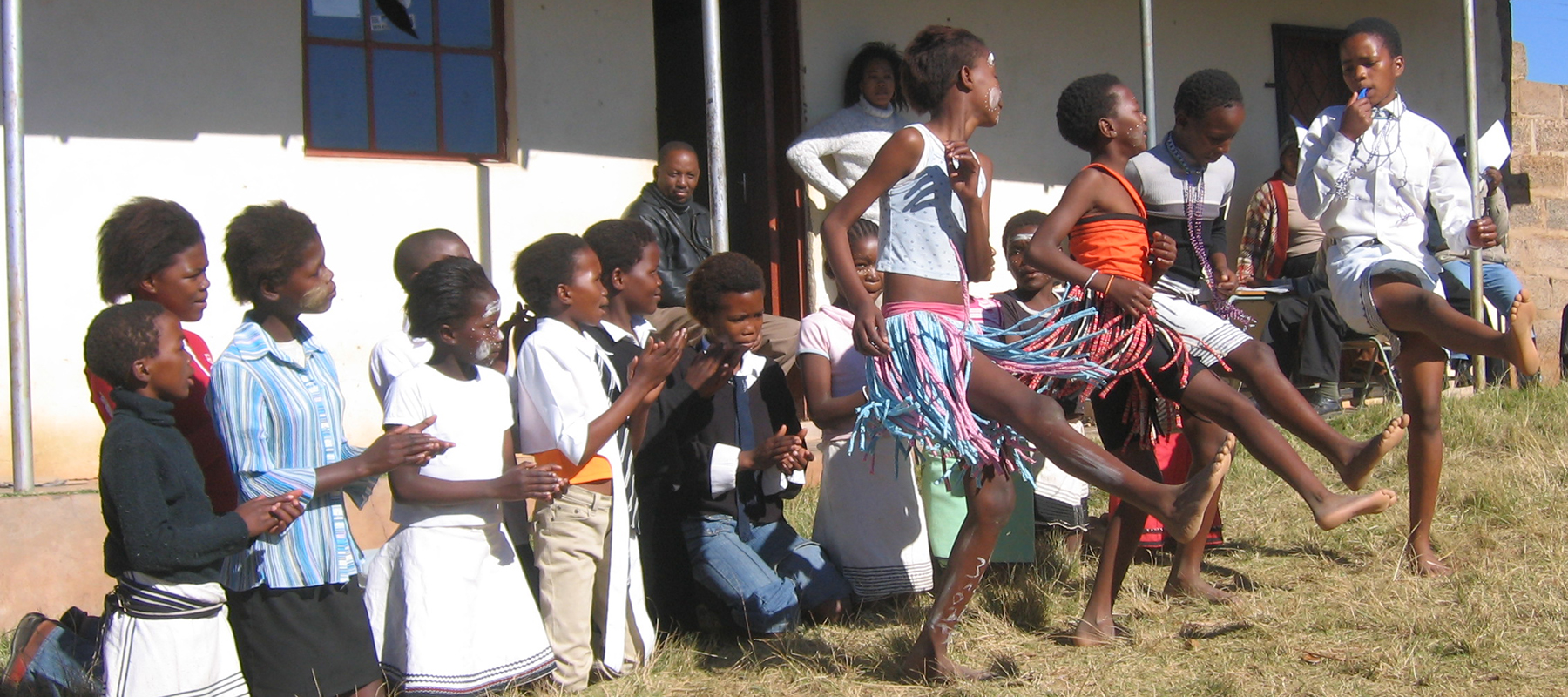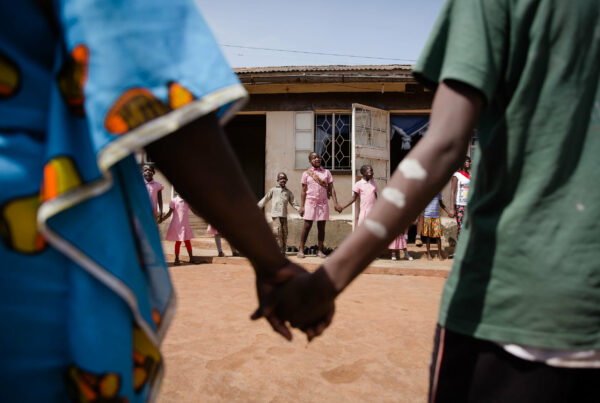Stephanie Soderstrom is coordinator for Volunteer Engagement for the Reformed Church in America and a presenter at Mission 2020, an event to celebrate 377 years of God’s work around the world through RCA Global Mission and to dream about the future of mission. It was held January 16–18, 2020, in Orlando, Florida.
This is one of several articles written by Mission 2020 presenters that Faithward is featuring. If you were not able to come to Mission 2020, we hope this gives you a taste of the event!
A few years ago, there was a video floating around the internet in which two basketball teams are passing balls around. Viewers are asked to count how many times one team passes the ball. After the answer is given, the video asks, “Did you see the moonwalking bear?” In the midst of these players, a person in a bear suit has walked across the court, waved their arms, and moonwalked off. The video then acknowledges, “It’s easy to miss something you’re not looking for.”
The first time I saw this video, I was definitely among the people who missed the bear in an attempt to count every pass.
What have we missed on mission trips?
Sometimes, this is what we’re like in the church. We miss things, not because they aren’t there or aren’t obvious, but because we are so focused on something else that we just don’t notice. The way to change this is to change the way we see things and what we focus on. Mission experiences are one way that we can intentionally engage with something that will change the way we see the world, God, and ourselves.
I’m not advocating mission trips as self-serving experiences that we should go on simply to expand our horizons. I do, however, think that by following Jesus’s commands to love God, love our neighbors, and go into the world to make disciples, we will be changed.
What I noticed in South Africa
When I was a freshman in college, I signed up to go on a mission trip to South Africa for a month. Until that time, I had never left the country; I had only lived in the midwestern United States. And, since becoming a Christian a few years earlier, I had only worshipped in fairly traditional mainline Protestant churches. We didn’t raise our hands too often. A gentle sway with the music was really our wheelhouse for worship.
When I arrived in South Africa, we worshiped every day, often with groups from the local communities, and I saw people dancing, shouting, waving their arms, lying on their faces, and singing spontaneously as they praised God. At first, I didn’t know what to do. I was so uncomfortable! But I couldn’t deny that the Spirit was moving. The people were worshiping God, praising Jesus, and responding to Spirit in a way that was completely authentic. My understanding of who God is, how God moves in cultures, and how people respond to the Holy Spirit grew.
When I came home, I was on the lookout for how the Spirit was moving and how people were responding in my own culture. One place where I felt God moving was in group prayer times. I was more confident to pray out loud with and for others because of the prayers I had been a part of in South Africa.
A new way of mission in Nicaragua
A few months after I started working for the Reformed Church in America, I visited one of our mission partners in Nicaragua to observe the organization’s work and see how mission groups could engage with them. The community development organization walks alongside villages as they work to develop sustainable agriculture, business, and leadership practices. The North American church is invited to partner with these villages through relationship and presence. No “work projects” are required.
As I sat with farmers and women who were starting small businesses, I saw a people filled with dignity, perseverance, and creativity. They didn’t need me to be there, but they were encouraged by my presence and interest in their development. It was humbling for me to know that there was nothing they needed me to do or give in order for their community to grow and thrive. And yet, they wanted to spend time with us because we were brothers and sisters in Christ.

Stephanie Soderstrom had a different kind of mission experience when she visited Nicaragua. She’s pictured here in the back left with a fellow RCA staff member, RCA missionary Olivia Iekel (front left) and their Nicaraguan host.
Growing as a global Christian is about discipleship
Experiencing God’s world as outsiders, in moments that might be uncomfortable or humbling, can shape our faith and the way we see the world. Growing as global Christians is about discipleship. It isn’t about sending people out to “expand their horizons” or “understand how blessed they are,” although those things may happen. Growing Christians who have a perspective that sees more, takes more people into account, and asks different (and maybe better) questions allows us to know God more fully.
When we take the opportunity to step into another culture, acknowledging that the Spirit is present and active already, it allows us to see the beauty of the people who make up that culture. They are people created in God’s image, just as we are. The ability to see that reality and to love is not something that we Christians are born with. We have to step outside of ourselves and our comfortable communities to encounter the goodness of God’s diversity and creativity.
And then we have to work to hold onto that way of seeing God and the world, so that we can share it with our home communities. I don’t believe that anyone is consciously ignoring the creativity of God, the variety of ways the Spirit can move, or the lessons that others have to teach us, but sometimes we are so focused on what we know, or what we think we should be doing, that we miss it.
Just like I didn’t see the moonwalking bear, sometimes we don’t see what we aren’t looking for. The only way to change that is to change the way we see.

Stephanie Soderstrom
Stephanie Soderstrom is coordinator for Short-term Mission for the Reformed Church in America. You can connect with her by email at ssoderstrom@rca.org.



